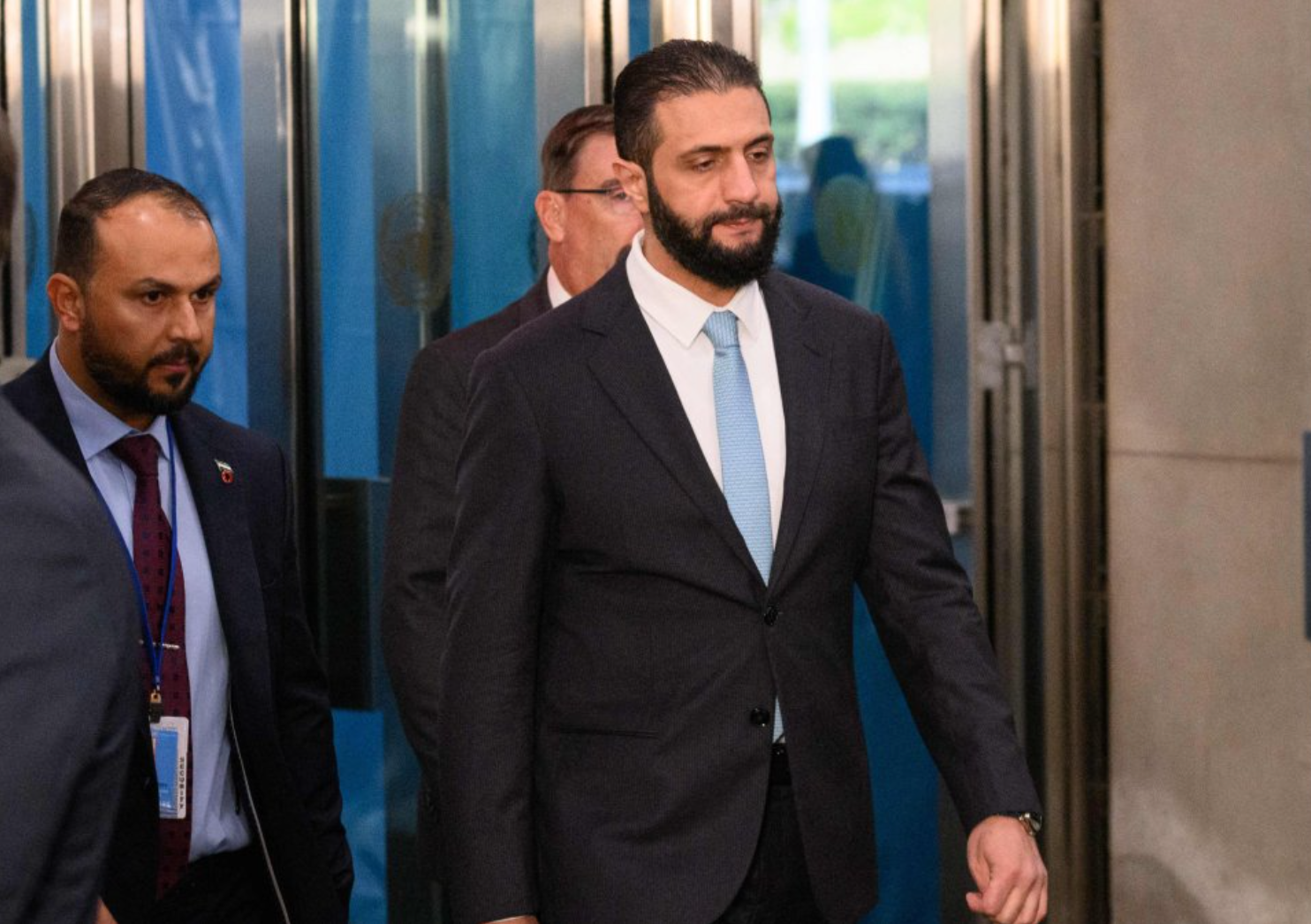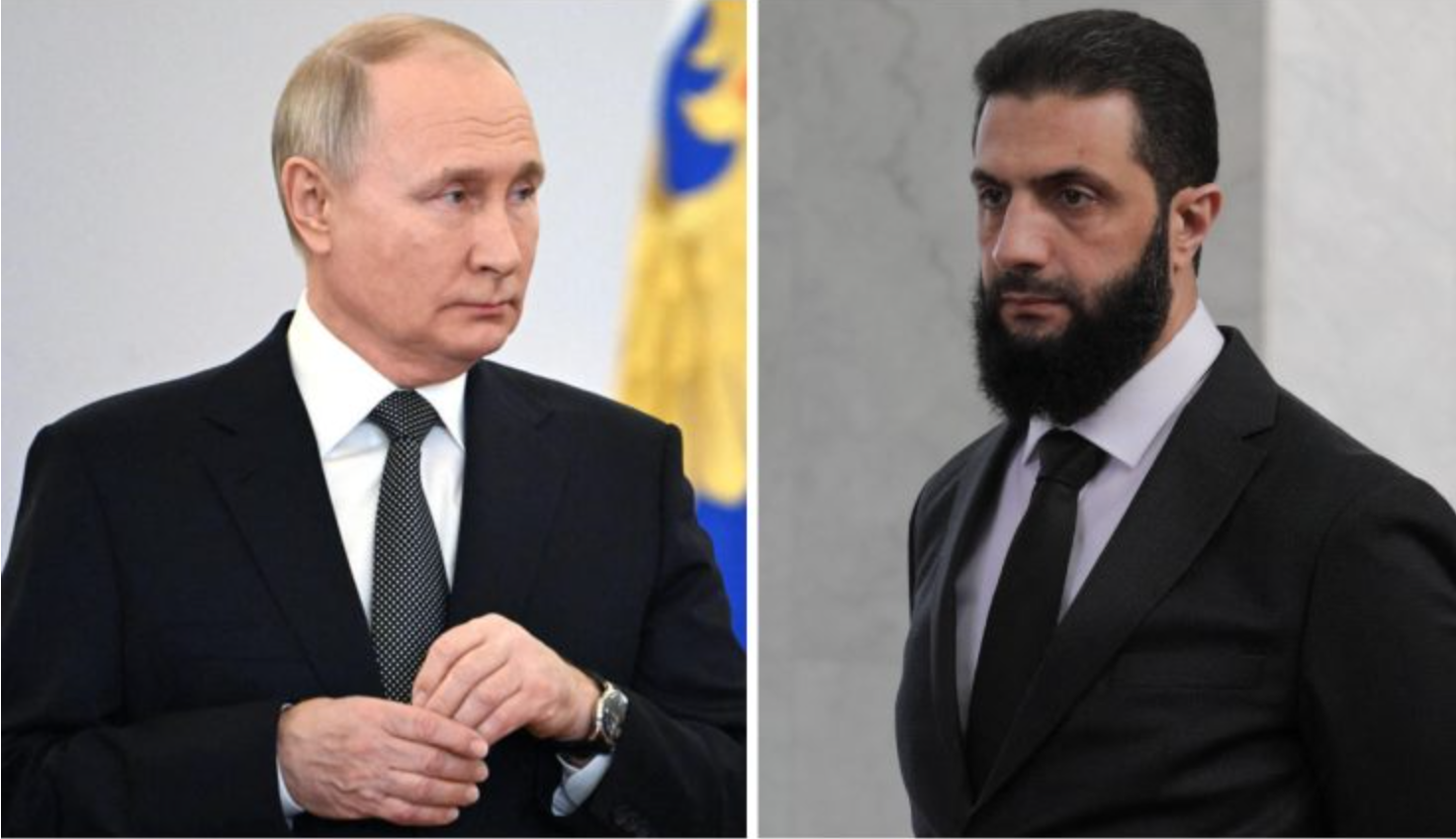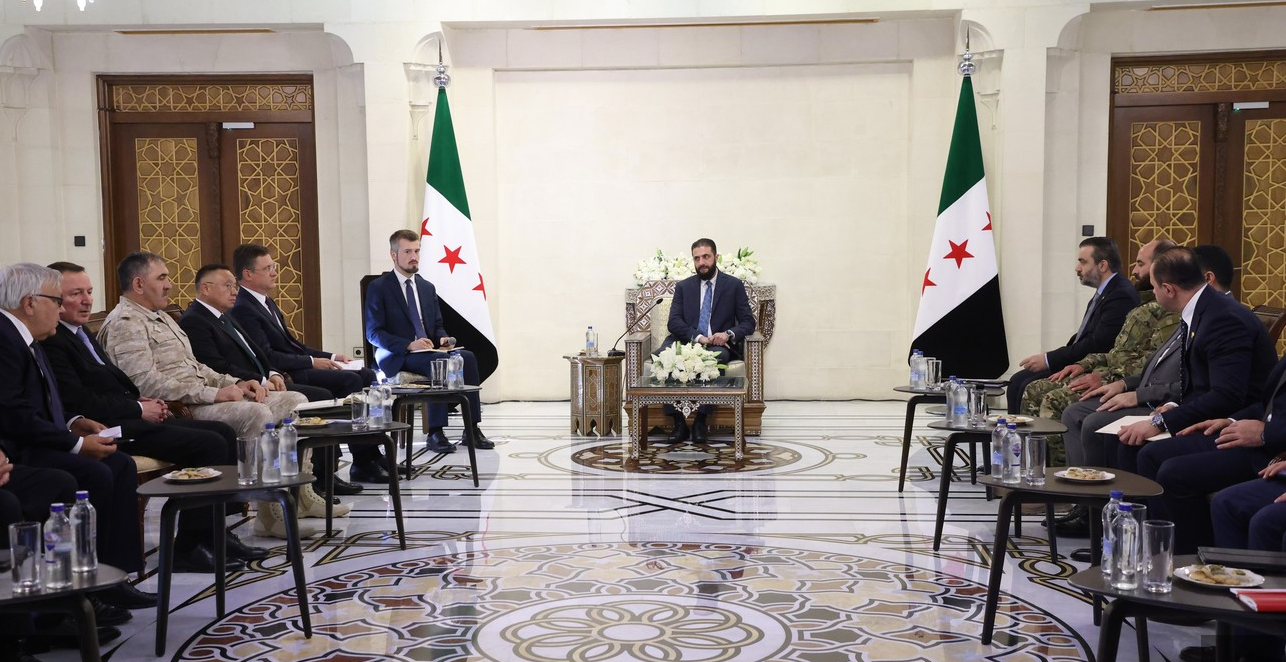A new phase for Russia-Syria relations?
Syrian interim President Ahmed al-Sharaa is visiting Russia, expected to have an important meeting with President Vladimir Putin in Moscow. This is Mr. al-Sharaa's first visit to Russia since the overthrow of former President Bashar al-Assad's regime in December 2024. The trip is of important symbolic significance, and is believed to open a new phase in Russia-Syria bilateral relations!
Design establish copper bright new

The public must remember that former Syrian President Bashar al-Assad was one of Russian President Putin's longtime close allies. Notably, interim President Ahmed al-Sharaa - the former leader of al-Qaeda's branch in Syria - was the one who held the flag of the rebel forces, controlled the capital Damascus and formed a new government at the end of last year, ending many years of Mr. Assad's rule. Then, of course, the long-standing relationship between Russia and Syria became tense since Mr. al-Sharaa came to power. Former President Bashar al-Assad had to flee to Russia to seek refuge after the regime collapsed.
Some information said that Russia later refused the request of the new government of Damascus to extradite Mr. al-Assad back to Syria to face a series of crimes such as murder, torture, causing thousands of Syrians to go missing... The new Syrian leader at that time said that he had made a proposal to continue to let Russia maintain a military presence in Syria in exchange for the extradition of Mr. al-Assad. Although Moscow rejected this agreement, Mr. al-Sharaa still hinted that his government could not rule out the possibility of military cooperation with Russia in the future, due to the Syrian army's dependence on Russian weapons.
However, positive signs have since begun to emerge as Russia has made moves to establish relations with Syria’s new leadership; including supporting the country on the diplomatic front after Israel’s airstrikes on Syrian territory. Remember in February of this year, President Putin had a phone call with Mr. al-Sharaa, affirming his support for Syria’s “unity, sovereignty and stability.” In July, Mr. Putin and Russian Foreign Minister Sergey Lavrov received Syrian Foreign Minister Asaad al-Shibani in Moscow.

The goal of “adjusting relations and opening a new chapter with post-Assad Syria” was clearly demonstrated during a visit to Syria by a large Russian delegation in early September. Accordingly, the Russian delegation was led by Deputy Prime Minister Alexander Novak - the top energy strategist of Russian President Putin. Notably, the delegation also included other senior figures such as Special Envoy Alexander Lavrentiev, Deputy Defense Minister Yunus-Bek Yevkurov and Deputy Foreign Minister Sergei Vershinin. The Russian delegation was warmly welcomed by Secretary General of the Syrian Presidential Administration Maher al-Sharaa. Russian Deputy Prime Minister Novak described the visit as an effort to expand cooperation in the fields of energy, defense, politics and reconstruction between the two countries. At the same time, he emphasized that relations must now be “based on respect and designed for the Syrian people to build their future”. He also said that the Russia-Arab Summit scheduled to take place this October in Moscow, with the participation of Syrian interim President Ahmed al-Sharaa, will be seen as a symbol of a “strategic reset” in relations with Russia.
Definition taste shoulder game
This visit to Russia takes place just one month after Syrian President al-Sharaa went to New York (USA) to speak at the United Nations General Assembly. In it, he declared that Syria is "regaining its rightful place among the nations of the world" and called on the international community to lift sanctions. "Syria is writing a new chapter in its history - a chapter of peace, stability and prosperity." It is expected that discussions between senior officials of the two sides will focus on economic issues related to investment, the status of the Russian military bases in Syria, or the issue of re-equipping the new Syrian army.

It should be noted that Russia’s access to the Khmeimim Air Base and the Tartus Naval Base on Syria’s Mediterranean coast, which have been Moscow’s key springboards in the Middle East and Africa, has been severely curtailed since the fall of the regime of former President al-Assad. In the new context, Syrian officials acknowledge the depth of their relationship with Russia but emphasize the need for balance. Some bluntly warn that any foreign presence must truly serve the reconstruction of Syria, not the maintenance of control. Syrian officials note that Damascus and Moscow are capable of building a relationship “based on sovereignty, justice and common interests,” and emphasize that Russia’s public support for Syria’s new political path would be “a step that benefits Syria and the entire region.” So for Moscow now, the big challenge will be to protect its military assets in Syria without being seen as impeding Syrian sovereignty or provoking further Israeli escalation.
The visit underscored both continuity and strategic change in Russia-Syria relations, observers said. Moscow remains committed to protecting its military foothold, securing energy contracts and rebuilding Syria, and leveraging its diplomatic relationship with Israel to maintain its presence in the region. But Damascus under the new government will no longer be willing to accept the terms of near-total subordination that defined the Assad era. By pushing for cheaper fuel, more technical assistance, and a rebalanced military framework, Syria’s new leadership is signaling a more balanced, reciprocal approach that values sovereignty.
This dynamic is said to be turning into a negotiation between two sides with overlapping interests and increasingly different expectations. Russia wants to avoid a “cold war” scenario with Syria, while Syria hopes to be guaranteed security without returning to the previous patronage. Therefore, this visit of the Syrian interim President to Russia is not only ceremonial and symbolic; it is also a test to see whether the two sides can redefine their bilateral partnership to suit the reality of a “post-Assad order” - an order in which Russia still maintains an important role but is no longer as inviolable as before!./.
